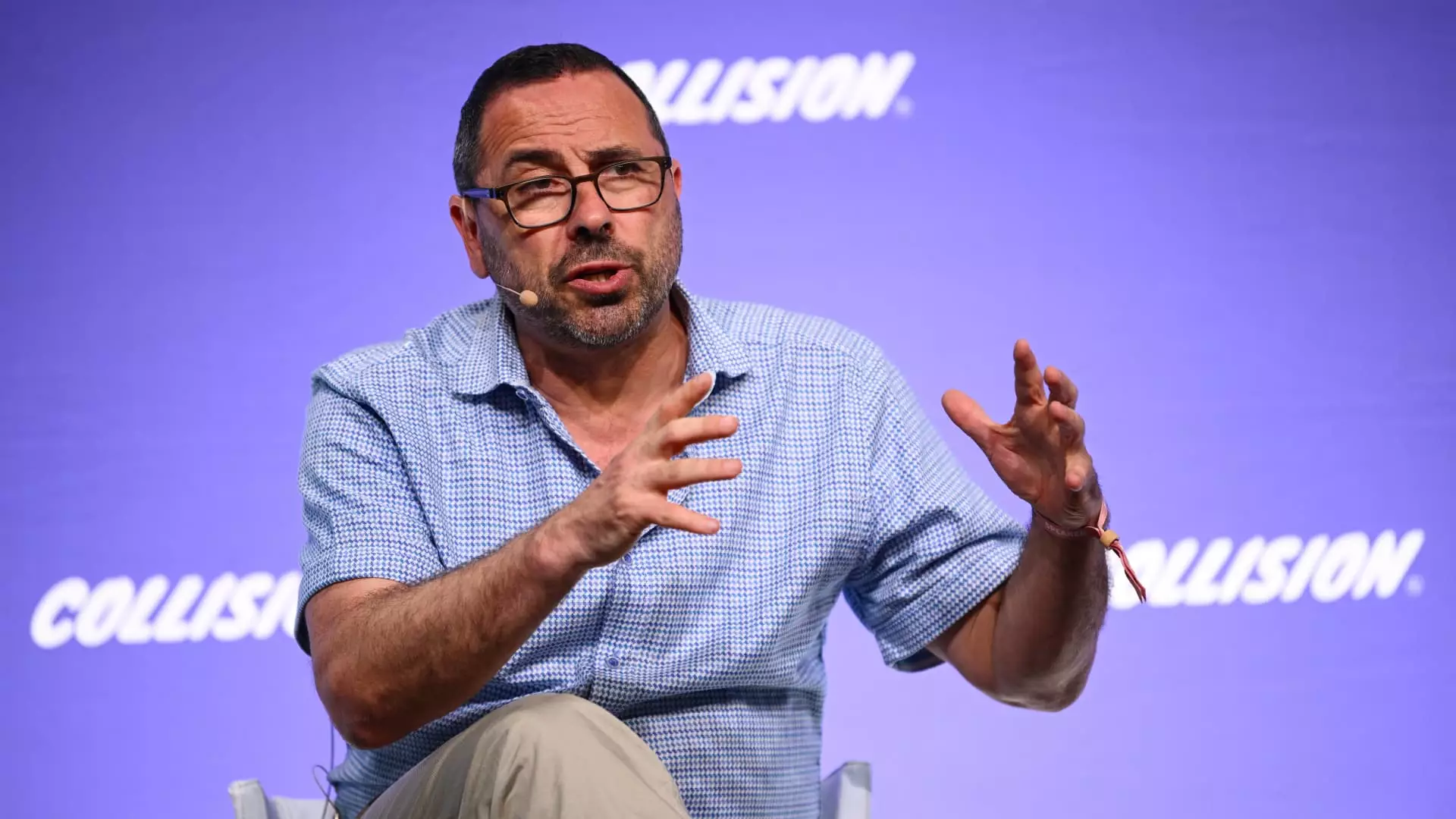In an era increasingly dominated by artificial intelligence (AI), hardware startups face both immense challenges and incredible opportunities. Cerebras Systems, a pioneering company in AI chip development, recently announced its plans for an initial public offering (IPO) under the ticker symbol “CBRS” on the Nasdaq. Founded in 2016 and headquartered in Sunnyvale, California, Cerebras has positioned itself as a formidable competitor in a sector that is rapidly evolving and becoming increasingly competitive.
Cerebras is not just another player in the arena of AI technology; it has carved out a niche with its unique chip architecture, particularly the WSE-3 chip. This chip boasts a higher number of cores and more memory than Nvidia’s popular H100, a staple in the industry for AI model training and execution. This competition is significant as Nvidia has long been the dominant force in AI processing units, making Cerebras’ claims an important aspect of their marketing strategy.
Moreover, Cerebras is not solely reliant on chip sales; it also offers cloud services that leverage its proprietary computing clusters. This dual revenue approach could provide a buffer against fluctuations in chip sales and offer added value to potential investors. However, the company isn’t without its shadows. With major players like Amazon, Google, and Microsoft developing their own AI chips, Cerebras must not only focus on its technological strengths but also navigate a daunting competitive landscape that demands constant innovation.
The financial outlook for Cerebras Systems reveals the high stakes involved in the tech startup ecosystem. According to its filing, Cerebras reported a net loss of $66.6 million against sales of $136.4 million in the first half of 2024. By comparison, during the same period in 2023, the losses were deeper at $77.8 million, albeit with $8.7 million in sales. This sharp increase in revenue could signal a growing awareness and demand for their technology, yet the sustained losses raise red flags for potential investors.
Operating expenses have also surged, primarily due to increased personnel costs necessary to fuel revenue growth. While hiring can be a positive sign indicating expansion, it also intensifies the pressure on the company’s financials and highlights the delicate balance between growth and sustainability.
Cerebras has secured significant partnerships, notably with Group 42, a UAE-based AI firm that constituted a staggering 83% of the company’s revenue last year. This reliance on a single client for a substantial portion of income introduces another layer of risk. Market conditions fluctuate, and should Group 42’s requirements shift, Cerebras might find itself at a financial disadvantage.
The startup’s relationship with Taiwan Semiconductor Manufacturing Company (TSMC), which produces its chips, also highlights the importance of solid supply chains. Cerebras has warned of potential disruptions that could impede its operations, an issue not uncommon in the tech industry but especially impactful for a company moving towards an IPO.
The overall investment climate for tech IPOs in 2024 appears trepidatious. Higher interest rates and a general shift towards profitable assets have led to a sparse landscape for technology companies looking to go public. Cerebras emerges from this environment as a uniquely positioned entity, having previously reached a valuation exceeding $4 billion during a funding round in 2021. This may bolster investor confidence even amidst a challenging IPO market.
However, the company’s backing from venture capital firms such as Foundation Capital, Benchmark, and Eclipse Ventures, coupled with notable individual investors like OpenAI CEO Sam Altman, adds to its allure. Simultaneously, the absence of leading investment banks like Morgan Stanley and Goldman Sachs from the deal could indicate skepticism regarding the startup’s immediate profitability or market positioning.
As Cerebras Systems approaches its IPO, it stands at a crossroads. The company has demonstrated impressive technological capabilities and secured significant contracts, yet financial losses and market saturation pose considerable hurdles. The competitive landscape for AI chips is evolving quickly, demanding rapid adaptation and innovation. Only time will tell if Cerebras can successfully navigate these waters and capitalize on its unique position within the tech industry. The stakes are high, and the journey ahead promises to be as unpredictable as it is pivotal.


Leave a Reply